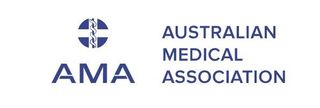Patient Information
What is an Anaesthetist?
A specialist Anaesthetist also known as a consultant serves as the highest level of anaesthesia provider and has responsibility for any anaesthetic administered. A specialist Anaesthetist in Australia has completed 6 years of medicine training, worked as a resident medical officer for at least two years prior to commencing training in anaesthesia and then trained for at least five years prior to becoming a consultant. Thus an Anaesthetist has completed medical school and has been a doctor for at least seven years - coming to a grand total of at least thirteen years of training.
What does an Anaesthetist do?
Your Anaesthetist administers anaesthetic which is used to temporarily reduce or take away sensation, usually so that otherwise painful procedures such as surgery can be performed. The primary goal of your Anaesthetist is your safety and the level of safety patients can expect in Australia is amongst the highest in the world.
Your Anaesthetist takes a careful look at the history of the patient and their general health and uses this information to decide how best to offer care. The various options will be discussed with the patient before the operation; patients are encouraged to ask questions and speak about any worries they may have.
Anaesthesia induced sleep is not the same as ordinary sleep but a form of temporary unconsciousness that is carefully controlled by the Anaesthetist. This involves administering the right quantity of anaesthesia for each kind of operation. Throughout the procedure, different types of medicines are added or removed to relieve the pain and maintain the right level of unconsciousness.
During the operation, the Anaesthetist stays with the patient at all times to make sure they are comfortable and safe. This includes controlling pain, replacing body fluids and measuring and controlling all the vital functions of the body such as the heart beat, blood pressure and brain and kidney function.
This process continues after the operation, when the Anaesthetist will organise the control of any pain or sickness and advise on when it is safe to eat and drink again. Your Anaesthetist will escort you to the recovery room and she will supervise your recovery period in conjunction with the recovery room staff.
Your Anaesthetist will spend more time looking after you while you are in the operating suite or procedure area than any other member of the medical team.


